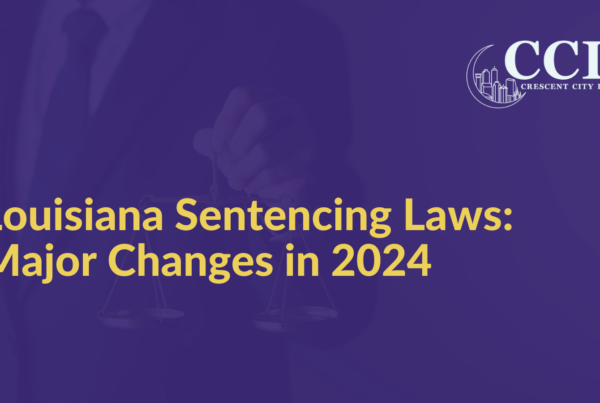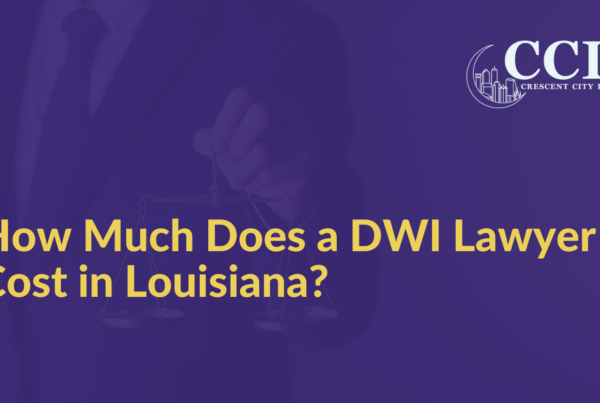You might be reading a lot about gang criminal violence in New Orleans lately and how a number of “gang” members are being indicted on racketeering charges. No, racketeering has nothing to do with tennis or racquetball. Racketeering is related to organized criminal activity and New Orleans has an agenda to bring crime in the city down through extensive multi-agency investigations. Let’s take a look at the crime in New Orleans, understand what is racketeering and why a racketeering charge is being brought on so many individuals in this city.
Gang Violence in New Orleans
In May 2013, the city was swept with the news that 15 members of a gang that called themselves the “110-ers” were being charged with a racketeering indictment that involved drugs, guns and murder on 51-counts. In June, another 20 gang members were charged with similar charges…these members called themselves “3-N-G” and were based in the Uptown area of New Orleans. There were at least 30 counts of racketeering against these 20 men that included conspiring to distribute drugs as well as using violence to gain control over its “territory.” Orleans Parish District Attorney, Leon Cannizzaro, has been using a strategy that indicts violent neighborhood gangs in large groups through a 30-year old state statute that is rarely used until recently. A third gang, the “D-Block” gang, based in Mid-City, had 11 members plea guilty last week to various racketeering charges that Cannizzaro’s office pursued.
Photo by Michael DeMocker, Nola.com | The Times-Picayune
What is Racketeering?
Racketeering is the act of operating an illegal business (or a “scheme”) for a profit and is led by an organized group – in this case, violent New Orleans neighborhood gangs. In these particular cases, a lot of the local charges include criminal activities such as drug crimes, gun and weapon-related crimes, assault and murder but other charges can be brought about through racketeering that may include illegal gambling, bribery, or even sexual exploitation of children. Gang violence and organized crime, such as mobs or the mafia, can often have parallel charges brought against them because their motives are oftentimes similar.
Sometimes, the criminal organizations that participate in racketeering activity have legal businesses, such as licensed gaming establishments or garbage collection, so they can cover their illegal crime. In addition, the illegal business can be operated with bribing, blackmailing, or extortion…or, in this case, violent crime.
Why Are the Multiple Gang Members Getting Charged with Racketeering?
It’s important to understand that there are different and multiple indictments happening right now in the city of New Orleans. The original investigation was designed through a Multi-Agency Gang Unit that was put together in November of 2012 and initially targeted 39 identified gang groups all across Orleans Parish. When I say “gangs,” I am talking about neighborhood turf groups rather than what you may believe to be like the “Bloods” and the “Crips.” Some of the enforcement agencies included in this investigation are the New Orleans Police Department, FBI, DEA, United States Attorney’s Office, Orleans Parish District Attorney’s Office, Louisiana State Police, Orleans Parish Sheriff’s Office and some smaller agencies.
In the past, there were critics claiming that if they engaged in this sort of investigation, that the New Orleans judicial system and criminal system could not handle the number of cases that would be presented to the judges. A former Orleans prosecutor, and now defense attorney representing a number of the 3-N-G members, Eusi Phillips, says:
“There’s no way in the world this case is going to proceed with 20 defendants. The system can just not handle a 20-defendant trial,” Phillips said. “I think it’s just a big show by the district attorney. A lot of these people have had charges in separate sections of court. It turns a case that was probably weak into something stronger. It’s more of a burden on the system than anything.”
There are still arguments that this type of crime should be reserved for the federal courts. Professor of Law at Loyola Law School, Dane Ciolino, points out that this is the type of case that in a federal court, the court would pay for the defense attorneys while in Orleans Parish, private attorneys will have to work pro bono to defend the defendants in the cases. Photo by Matthew Hinton | The Advocate Staff
What Does This Mean for New Orleans Crime?
For one, the prosecutors cannot pursue any higher sentences under the state’s habitual offender law for any crimes that are also a part of the racketeering indictment. If these gang members are being charged with the racketeering charges, then they may get off on other crimes that they have committed and cannot be charged for those crimes. Therefore, prosecutors are being careful about which charges they are bringing upon each individual group member. The racketeering statute can carry jail sentences from 0 to 50 years.
For New Orleans law enforcement, this is an action to show the city and community that this multi-agency investigation is on-going and will not turn its cheek to this type of criminal activity. The state statute also allows prosecutors to introduce evidence for these crimes against a suspect when a jury or judge might only see a single crime at a time – the prosecution is proving that a particular individual or group is engaged in racketeering and a breadth of criminal activity in Orleans Parish. Whether the state’s system is able to handle the large indictments being handed down in the last few months is going to prove whether New Orleans has what it takes to take down this type of criminal activity.






